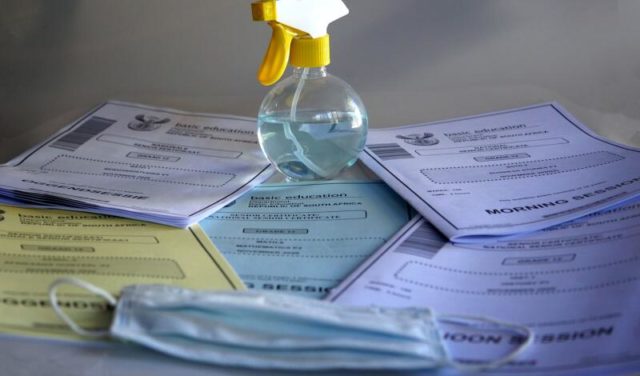Expert says matrics are not only challenged by the pandemic, load shedding is also making it difficult for learners to study, which may affect the results.
In addition to the challenges brought on by the Covid-19 pandemic, the matric class of 2021 is also faced with load shedding, making it difficult for matrics to study.
This is according to Equal Education (EE) researcher Elizabeth Biney, who said: “Recent blackouts due to load shedding have made this already stressful time difficult for this cohort of learners. Study time has been disrupted and the conditions under which they write their exams are unpleasant.”
Biney said that it was no surprise that matrics at well-resourced schools may feel better prepared and more confident, compared to those plagued with sub-standard learning conditions. Moreover, matric learners from poorer communities may not have had access to extra learning support in the form of private tutors, extra lessons or even internet connectivity.
“The reality is that learners from better-resourced public and independent schools are able to facilitate remote learning due to access to online learning services, and learning materials in their homes, compared to their counterparts who attend under-resourced, rural and township schools,” she said.
The EE says that based on the Department of Basic Education’s briefing in October, matric exams were ready to be administered. The DBE was rather optimistic at the briefing and affirmed that it was confident that the matric pass rate would improve because of the support programmes that have been implemented.
“As the EE, we hope that this will indeed be the case, considering the class of 2021 have had to contend with over 18 months of learning disruptions brought about by Covid-19. In 2020, we saw how the unequal learning conditions across the country reflected in last year’s results as rural provinces fared competitively worse. Even if the overall result improves this year, and we hope it does, we expect to see significant variations across provinces that reflect the different school conditions of learners.”
However, according to DBE spokesperson Elijah Mhlanga, there were no major challenges experienced thus far. The DBE hoped for an improvement in result as it believed that teachers and learners had worked hard this year despite the challenges of the pandemic.
“Unlike last year, the Class of 2021 has been in school every day and through all school holidays they remained in school. No interruptions whatsoever,” said Mhlanga.
The EE says that although the department had taken steps to address some of the challenges emanating from the pandemic, a lot more needs to be done to improve learning outcomes.
“It is critical that education departments focus on the early years of schooling, to ensure that learners are able to read for meaning. Without a strong foundation, learners struggle in the later years.”








